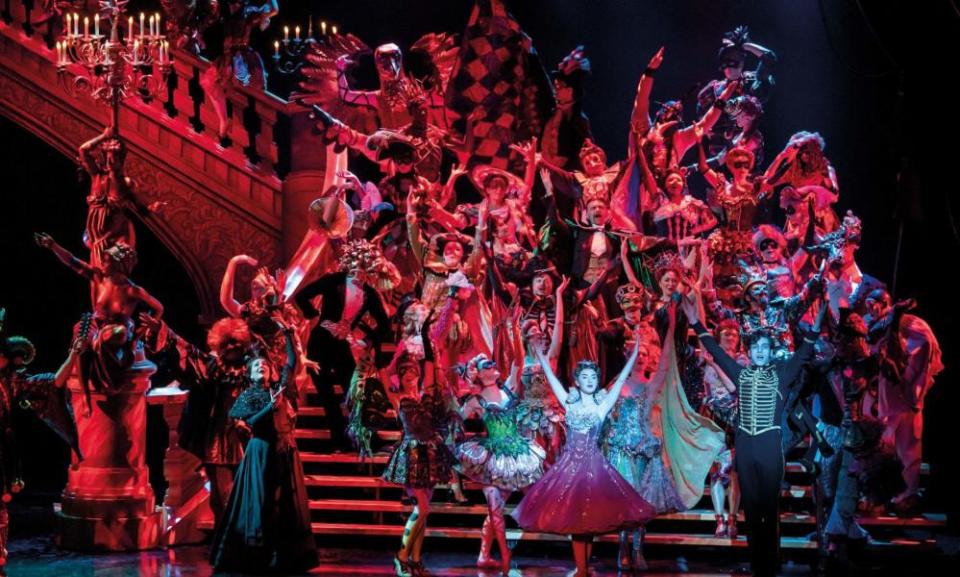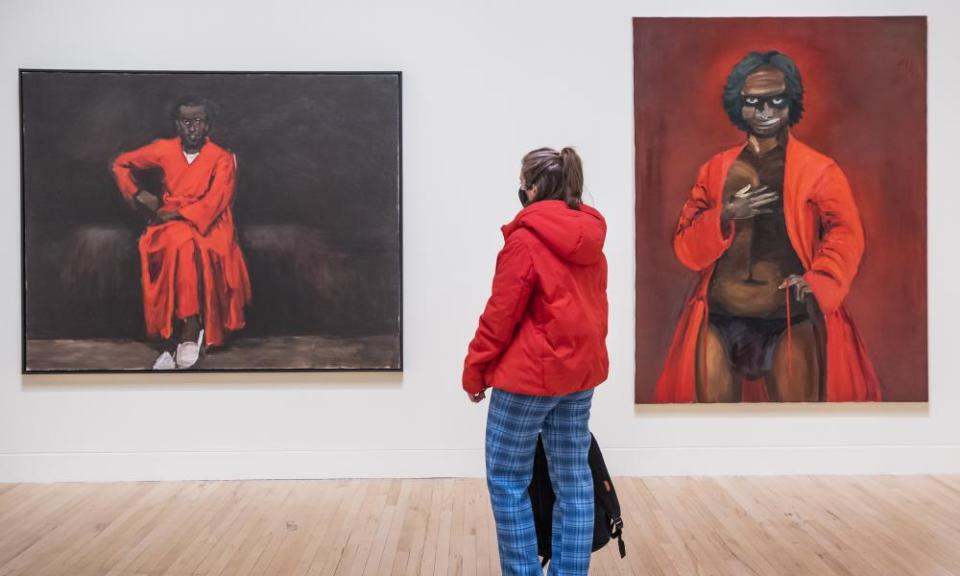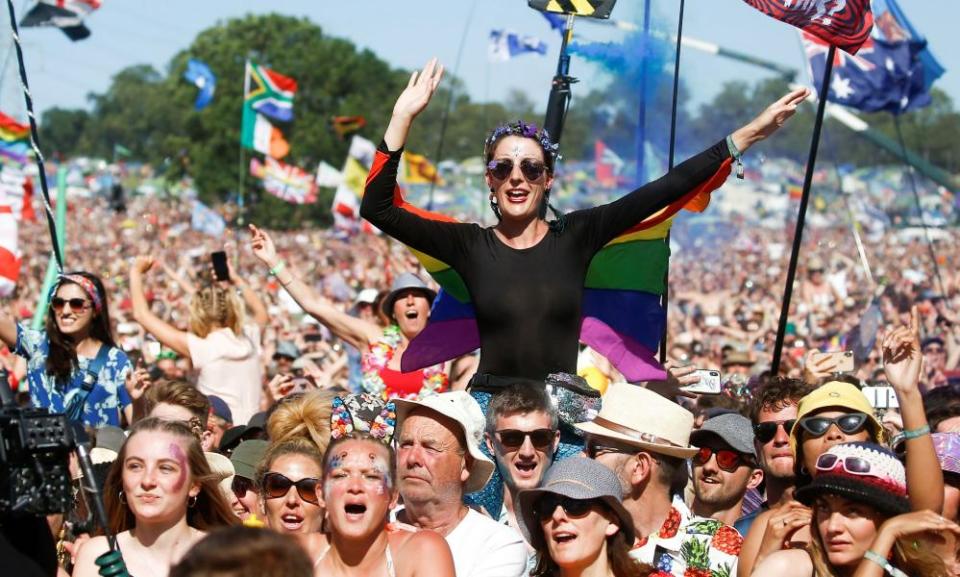‘We won’t be bouncing back’ – the unsettling truth about the big reopening

“If we had to close down again,” says Andrew Lloyd Webber, “we couldn’t survive.” Webber is staging his new musical Cinderella, with book by Oscar-winner Emerald Fennell, in a full-capacity theatre in July, having already delayed its premiere twice. He has mortgaged his house in London and will be selling one of his seven theatres. “It cost £1m a month to keep them dark,” he says. “You can’t just lock them up and throw away the key. I don’t run the theatres for profit and there wasn’t a reserve.”
Across the UK, the arts are reawakening after over 14 months of unprecedented disruption. As venues reopen – dates differ across the nations, though 17 May is a key date in Scotland and England – there will be much to celebrate, and many delights in store for audiences. But the pandemic hit culture and entertainment more severely than any other part of the economy, including hospitality, throwing fresh light on already deep inequalities.
“The arts are defined by low or no pay and a huge oversupply of workforce,” says Suba Das, artistic director of the east of England’s High Tide theatre, and a trustee of Sage, Gateshead. “It is a sector with exceptionally poor working practices that is rife with exploitation. The question is, ‘How do we find the energy and bravery to rebuild more equably?’” Behind the joy, in short, there is a sense that damage runs deep, that recovery will be slow, and that the arts will never be the same again.

Musicians in Webber’s musical The Phantom of the Opera have learned this the hard way. When the West End production reopens, it will use 14 musicians rather than 27, a cut that has horrified artists’ unions, who fear this is the shape of things to come. Smaller casts and bands mean fewer people in work and, as London-and-Anglesey-based actor and director Steffan Donnelly tells me, there are already worrying signs elsewhere of creatives being asked to work for less, or for no fee at all, often to prepare shows that might or might not go ahead. Phantom is produced by Cameron Mackintosh, not by Lloyd Webber. “I just had 81 musicians at the Theatre Royal Drury Lane for a recording session,” says Lloyd Webber. “It is pretty clear where my heart is.”
For many, the ground has shifted so significantly that the world of 2019 is now basically irrecoverable. Tate, an organisation that grew rapidly over the past 30 years, is now shrinking itself at devastating speed, a process causing huge heartache and much disarray internally. Last year, there were redundancies equivalent to 217 roles at Tate Enterprises, the bars, restaurants and shops that had propped up its expansionist economic model.

This year it is the turn of the core operation, Tate itself. Through voluntary redundancies, says director Maria Balshaw, “we are saying goodbye to 150 colleagues across our four galleries and stores”. The government’s £1.57bn arts rescue package last summer “prevented mass closures” across the museums world, she says, but “it’s not possible to have an extreme reduction in modes of operation without long-term consequences”. There will be less activity generally, with longer, less flashy shows: “We won’t be bouncing back.” Unlike, one suspects, many of the art-loving, blue-chip super-rich who love to be associated with Tate Modern’s outward glamour, but who have little idea of the internal angst of running a public sector institution.
Classical music has had a particularly tough time. Unbound by language constraints, its business model has hitherto been highly internationalised, involving a complicated web of artists, powerful agents, orchestras and opera houses spread across many countries – countries that are now grappling with a baffling array of different quarantine, lockdown or social-distancing regulations. Added to that, there is – for British artists – the disaster of Brexit, meaning expensive visas and work permits. In short, the old economic machinery of classical music is broken, and the wreckage has collapsed primarily on the self-employed, whether musicians, composers, singers, technicians, designers or directors.
Jennifer Johnson, a Liverpool-based mezzo-soprano, saw her packed 2020 diary collapse. Instead of several productions in Munich, her Glyndebourne debut and “I don’t know how many concerts”, she has done a single recital and three dates with orchestras since the pandemic hit. She was eligible for one round of the self-employment income support scheme, but 45% of musicians fell through the gaps altogether.
The sole breadwinner of a single-parent family, this internationally renowned singer has taken two teaching jobs. Her most frequent regular employer, the Munich opera house, is in lockdown throughout June. In the meantime, she says, “if I was offered a recital in, say, Spain I would have to quarantine for two weeks to do a single date, as well as get a visa.” Her core repertoire is one of massed forces and vast orchestras – Mahler symphonies, Wagner, Elgar, the kind of music that doesn’t work in slimmed-down versions. She is seeing colleagues drift out of the business. “If you have to give up a new source of income to take up a [performing] job,” she says, “that puts you in a very difficult position. I’m very lucky that my teaching is flexible.”
As Suba Das points out, those most likely to leave the arts altogether are those who lack financial cushioning: “Disabled people, people of colour, those from socially deprived backgrounds – it is these people who are stepping away from the precarious business of working in culture.” This narrowing will be bad for the arts and for society.
Freelancers I have spoken to feel left behind by some institutions, which on the whole have been relatively protected – in the short term at least – by the culture recovery fund and furlough for employees. But institutions are also grappling with difficulties. Britten Pears Arts, which runs Snape Maltings concert hall and the Aldeburgh festival in Suffolk, would normally be partly funded by Benjamin Britten’s royalties, and a range of shops, galleries and cafes – the kind of mixed, entrepreneurial business model favoured by New Labour and the Tories. But around £1.4m of Britten royalties and £1m of shop income has been lost to the pandemic. The organisation was helped by the recovery fund but expects to be in deficit by around £750,000 this year.
May and June will see a range of concerts, from artists such as mezzo Sarah Connolly and violinist Daniel Pioro. They promise to be wonderful – but they won’t be on a pre-pandemic scale. “We can’t pack the stage with choir and orchestra,” says Roger Wright, the chief executive. “We can’t for example put on Tom Coult and Alice Birch’s new opera.” Planned for 2020, that work, the much anticipated Violet, has now been rescheduled – for the third time – to 2022.
Across the arts, delayed new works are having to wait their turn, and it is hard not to imagine a serious slowing of commissioning, especially given the all-round reduction in resources: bad news for creators. Meanwhile, even getting going this summer is impossible for some, most notably for such music festivals as Glastonbury. Uncushioned by public subsidy, and in the absence of a government-backed insurance scheme, they have judged the danger of sudden enforced cancellation too ruinous to risk.
Amid all the difficulties, it is clear that the arts are needed not only on an emotional level: there will be tears as people hear beloved music, or see great art, or sit in a theatre audience once more). They also have the capacity to play an important part in the UK’s recovery. In Derby, Tony Butler, who runs the city’s three museums, is eagerly anticipating at last being able to open, on 21 May, the delayed new Museum of Making, set in a 1721 silk mill. But it will open into a city centre – like many up and down the UK – utterly transformed by Covid-19.
“Fifty per cent of shops that closed during Covid won’t reopen,” he says. “Derby is not the place it used to be.” Its high street, like many, was already struggling. The council, he says, “has had a Damascene conversion to the idea of a culture-led recovery” for the town. But it has desperately stretched resources – and that is reflected in the museums’ funding, which has taken a 10% cut in its council grant already. And that’s just this year. “Among civic museums, most of us have seen cuts of 30-50% in the past seven years.” This is thanks to ex-chancellor George Osborne’s flawed, damaging austerity policy.
Many artists and organisations have strained hard to adapt and change and keep going. Some of these adaptations will presumably be temporary. David Greig’s new play Adventures With the Painted People, premiered on Radio 3 last year, seems perfectly suited to outdoors performances in Pitlochry, Perthshire, this June. In the long term, however, you imagine that audiences will prefer the warmth of the town’s Festival theatre. Meanwhile, a wholly online Hay festival may mean no queues for the toilets, and no sold-out events, but also a huge hit for the economy of its hometown on the Welsh-English border.

But hybridity – adapting events to have a combined online and live existence – is surely here to stay. Kwame Kwei-Armah has announced that he intends to livestream all future performances at his theatre, the Young Vic in London, as well as stage them to a physical audience. It is as much an issue of broadening access as anything else, he says. The same is true for Nick Barley at the Edinburgh international book festival, for whom there is no going back after last August’s online festival attracted audiences (and artists) who could never have attended in person. The climate crisis is making it morally necessary to limit international travel. “But more fundamentally,” says Barley, “it is about making the festival accessible to people who can’t come whether because they are in prison, or for health reasons, or for neurodiversity reasons, or for geographical reasons”. A mixture of live and online audiences seems the way forward.
Some organisations have neither closed their doors, nor stopped working, at any point over the past 14 months. Slung Low, a theatre company that runs an arts centre in Holbeck, Leeds, became one of the council’s community hubs during the first lockdown, and the area’s food bank. Theatre companies in general are excellent at logistics: Slung Low was thus well-suited to getting its neighbours fed as well as entertained.
“Our job is to provide Holbeck with the best cultural life we can,” says Alan Lane, the artistic director. “But if you are terrified of hunger, then you aren’t going to come, are you? We’re still artists even if we are humping beans out of a van.” Operating at full tilt and with no staff furloughed, it was relatively straightforward for the company to put on shows as soon as they were allowed. From Lane’s perspective, though, “the ecosystem that kept the arts going is broken. The spider’s web that connected everything only existed if you had privilege anyway.”
What about the future? His answer is simple, though its ramifications are not. “You can’t live in proximity to historical events and not be changed. The future has to be different.”

